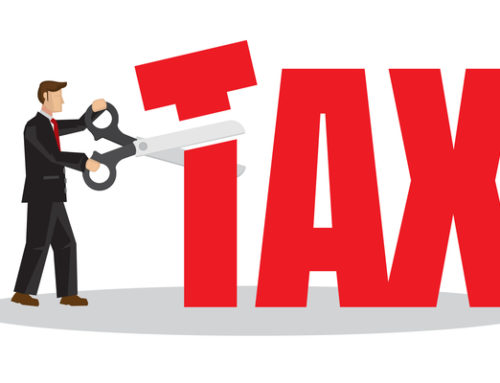The holidays are an undeniably joyous time spent celebrating with family and friends. However, this time of year is often associated with higher than normal spending as we shop for gifts and arrange memorable holiday parties. As we recover from our increased spending patterns, we should be paying extra attention not just to our recovery from this overspending, but to fraud risk as well.
The New Year presents an optimal time to reset annual spending budgets. Not only does this allow us to stay on track with our financial goals but also helps to steer clear of any avoidable interest. The latter can have a major effect on your credit score and maintaining a good one is not without its benefits.
Below are eleven important tips and tricks to keep in mind when it comes to your maintaining a healthy credit score.
1. Check your credit score regularly.
At a minimum you should be checking your score annually. However, checking your score more frequently and keeping a closer eye on it can help to identify suspicious activity. The sooner you’re able to catch fraudulent activity, the better the chances are that you’ll be able to recover fully. Keep in mind that applying for credit too frequently can have an adverse effect on your score.
2. Utilize free FICO scores from your credit card companies.
Everyone is entitled to a free credit report annually. Nowadays, credit card companies are offering free FICO scores to their cardholders. This is definitely something we recommend taking advantage of. While keeping a closer eye on your credit is worth the added costs, there is no need to spend the money if your credit card is offering it to you for free. Check with your credit card provider to see if this is available to you.
3. Take advantage of AnnualFreeCreditReport.com.
As mentioned above, federal law allows you to receive a free copy of your credit report every 12 months. AnnualFreeCreditReport.com is the only source that provides these to you annually at no cost, so we always recommend signing up and requesting your credit score updates. This is a great way to stay on top of your credit score and be aware of any changes.
4. What’s a good credit score?
In our opinion, 725 is recognized to be a good credit score. 760 is recognized to be an excellent credit score. Remember those benefits we mentioned above? Aiming to have a credit score of at least 725 will allow you to receive decent interest rates. Ultimately, the higher your score, the less interest you’ll end up paying but aiming for 725 (or higher) is a good place to starting point for those interest rate benefits to really take effect.
5. Think twice before canceling credit cards.
Before you rush off to cancel any unused or underused credit cards, consider the effect that doing this can have on your credit. Canceling credit cards has its pros and its cons. While it can be a way to save money, it can also negatively effect your score resulting in higher rates. For example, your oldest account serves as a bookend for your credit history and canceling this account could make your credit history appear shorter. Also, canceling those higher limit credit cards will have the same adverse effect. Does this mean you should never cancel your credit cards? Certainly not. But when doing so you should choose carefully and think strategically.
6. Set up all available fraud alerts.
It may go without saying that fraud can be extremely detrimental to your credit score, so it’s important to keep a watchful eye on your accounts. Look into setting excellent fraud alerts on each of your cards and open accounts. Taking the extra step to verify a purchase is ultimately worth it knowing that you’ll be able to catch fraudulent activity the moment it takes place.
7. Keep cards in a safe place in your pocket or purse.
Many credit cards have the tapping functionality instead of swiping, making these cards much more easily scanned by scammers, who can then access all of your information. Place any credit cards with their magnetic strip facing the inside of your wallet. Having the front facing out will make it more difficult for these scammers to access your information. Adding a piece of aluminum foil to your wallet or pocket can also add an extra level of protection.
8. Know your scores before applying for loans.
Loan inquiries can and do affect your credit rating. Applying for multiple credit lines in a short period of time, for example, will lower your score because looking for new credit can equate with higher risk. These are called hard inquiries and can drop your score anywhere from 5-10 points. By knowing your scores ahead of time, you’ll better be able to apply for loans that you’re more likely to qualify for.
9. Be wary of adding authorized users to your credit card accounts.
Adding an authorized user to your credit card will not negatively affect your credit itself, but their spending patterns certainly can. As the account owner, you and you alone are responsible for any expenses made by you or the authorized user(s). In other words, you’re responsible for their purchases but also their mistakes. Before giving someone else access to your credit card account, be it a spouse, child or otherwise, make sure you have complete confidence that they will be using your card responsibly or your credit can take a hit.
10. Give a second thought to openings new accounts.
Many credit card companies have incentives for opening new accounts such as increased credit limits. While these offers may seem appealing, these offers simply do not make sense. Opening new accounts can actually backfire and lower your credit scores. For those who have a shorter credit history, opening a lot of accounts quickly is sure to lower your credit score as your patterns are less reliable.
11. Beware of the “0% interest for 24 months” offer.
These “same as cash” promotions where you’re offered 0% interest for 24 months, can be incredible costly. Consider that if you have even $0.01 left in your account after the allotted period of time, the interest gets charged back to the day of the original purchase.
The more you know about credit scores, the better chances you have of maintaining a high score and reaping the associated benefits, including lower interest rates. Contact your financial advisor for any additional credit score advice.




